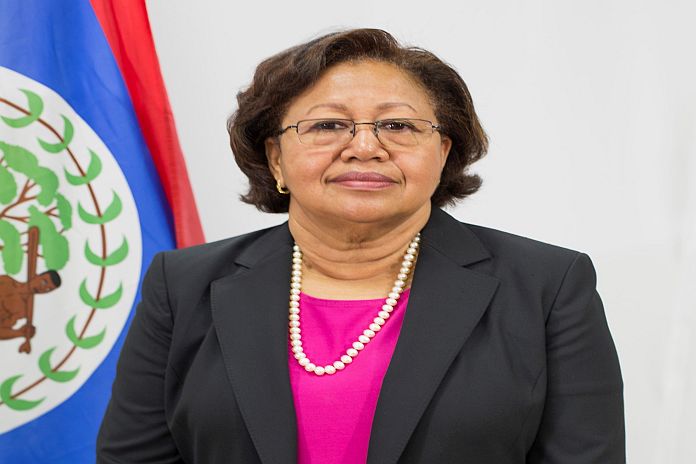By Earl Bousquet
When I penned an earlier column entitled, ‘Next CARICOM Secretary-General: A Woman’, few noted that I’d concluded with an unalterable obvious, a given.
Instead, among those who bothered to voice their notices, some – mainly Saint Lucians – were more concerned that I might have been saying what I never said but they verily imagined like a dying wish: that the Saint Lucia prime minister had prevented a qualified Saint Lucian from being the first woman to break the thick glass ceiling at the CARICOM Secretariat in Guyana.
I am aware that a (lesser-few) sober minds who read the article tried to explain that nowhere did I even imply what was alleged.
But the election bell has already loudly rung with deafening silence, one can understand that, as per usual every five years, those who prefer to live in a yellow submarine will scrape the ocean’s floor for red pins to prick poor me.
I’d simply speculated, that with two women nominated and nominations still open, if Saint Lucia had nominated a Saint Lucia-born former secretary-general of the much-larger Association of Caribbean States (ACS) for the position, she would have been the clear pick.
I also noted there was a conventional impediment: an unwritten diplomatic concordat that means, that since Saint Lucia’s candidate for the CDB (Caribbean Development Bank) was supported, Castries could not expect another Saint Lucian to be allowed to head another top regional organization.
But those trying hard to read what I didn’t write, naturally overlooked my point that the nationality of a candidate for a top regional post should not be a factor in consideration, but rather the ability to do the job.
My original article re-casted the transitional process between secretaries-general in an imagined but not impossible three-corner fight, took those looking for what wasn’t there on a fanciful flight of imagination that blinded them to the reality that a Saint Lucia candidate, could only have been possible if the Saint Lucia prime minister had nominated one – which he didn’t.
The jaundiced and bespectacled microscopic inspectors of my weekly Caribbean Bulletins and Chronicles at home and abroad continue to allow their eyes to run bloody red as they seek what’s just not there.
I promised a concerned relative I would have ‘explained’, if only for the benefit of the doubters – but later decided I wouldn’t do something I have never done: explain myself to people unwilling to listen.
I opted instead to allow time to decide when I would respond.
Now that Belize’s Dr Carla Barnett has been selected over the incumbent deputy secretary-general (Surinam’s ambassador Manorma Soeknandan), it now means the two ladies who vied for the top post – collectively hold the two top posts at the Secretariat – another first and another shattering blast through its virtual glass ceiling.
Our Caribbean, being a small part of the world where many big things tend to happen ‘for the first time’ that are sadly lost on the rest of humanity. I tend to look out for occasions like these that normally escape those only interested in seeking or igniting sparks of discontent if only ‘to keep a good story going…’
In a region where we still tend to accentuate the negative and negate the positive, the tendency would be for the press to first try hard to extract ‘responses’ and ‘observations’ about ‘the transparency of the election process, instead of accepting that while every battle ends with a winner and a loser, wars end in peace – and warring parties also replace their modern equivalents of swords with today’s ploughshares – and move on.
Both women have been number two at the Secretariat – and with one now number one, the two can team up to ensure both positions operate at fullest capacity, firing double-barreled on all pistons, with twin exhaust mufflers.
But here I go again, imagining the very possible in the face of evidence that not everyone shares my fertile imagination of things Caribbean worthy of constant chronicling.
Bousquet’s Bulletin isn’t your regular weekly parchment of collected facts and figures repeating what others have said.
Instead, it’s my weekly clarion call for all of us to rise above the din and start thinking – more seriously – about where we would like to see our Caribbean in this second age of independence when most former colonies have four or five decades of nationhood and two approaching six.
With the combined benefits of hindsight and foresight, The Caribbean has to decide where we go next in a global ocean where the wind continues to blow against small, poor and developing countries from all sides; and we’re still left to paddle our canoes through the oceans, whatever the weather.
Following the 1938 Caribbean revolutions that resulted in the establishment of trade unions that formed political parties – that forced Britain to allow the black majority in its colonies, the equal right to vote a mere 12 years later, the colonial authorities imposed a West Indies Federation that was destined to fail.
Federation (in the 60s) was followed by the birth of CARICOM (in the early 70s) with the regional gubernatorial entity is itself approaching its 50th year, which will allow the two women at its helm to be in a position to together steer the regional community through rough and calm waters, with all the support of the 14 leaders (presently one woman and 13 men).
On the eve of its 50th anniversary and with the benefit of half a century of collective experience, CARICOM needs leadership that will ensure the region can continue to ride the waves, if not comfortably, at least safely.
But this is also a time when CARICOM and its political leaders need to look back and ahead, to determine where we go from here.
And with two women at the helm, the story can be a whole lot different, if allowed to happen.
So, let’s see.





